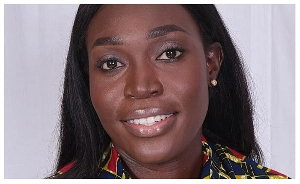 Minister for Gender, Children, and Social Protection (MoGCSP), Darkoa Newman
Minister for Gender, Children, and Social Protection (MoGCSP), Darkoa Newman
The Ministry of Gender, Children, and Social Protection (MoGCSP), together with its key alliance, is professionalising social work practice and training.
Madam Darkoa Newman, Minister of MoGCSP, said it would help strengthen the social welfare workforce in the country and enhance the capacity of staff at all levels.
She made the disclosure at the launch of the Social Services Workforce Training by the Ministry in collaboration with the United Nations International Children’s Emergency Fund (UNICEF) and the World Food Programme (WFP) on Thursday in Accra.
She said the training would offer a level ground foundation for the broader social work profession. “Coupled with the legal and regulatory framework for social work practice, it would help address potential conflicts of interest in delivering integrated social services to its clientele.”
Madam Newman said the Ministry seeks to ensure gender equality and equity, promote the survival, social protection, and development of children, the vulnerable and excluded, and persons with disabilities, and integrate the fulfilment of their rights, empowerment, and full participation into national development.
“To achieve this, there is a need to develop systems and tools that promote, protect, and strengthen the delivery of Integrated Social Services (ISS).”
She said in 2020, the Ministry, with funding from UNICEF, conducted a Social Welfare Service workforce capacity assessment to develop a long-term capacity-building strategy for the social welfare services sector in Ghana.
“The assessment revealed that the nation had only 49 percent of the workforce needed for social service delivery, and that a competent, adequately resourced, and trained social service workforce was necessary to provide the services and support needed by vulnerable populations.
“It also identified various barriers to the effective functioning of Ghana’s social service system and recommended the development of clear training guidelines for these paraprofessionals and steps to address these barriers, resulting in social services provision gaps.
“To this end, there is a need to enhance the capacity of staff at all levels to ensure gender equality, promote the welfare and protect the rights of children, older persons, and empower the vulnerable, excluded, and persons with disabilities for sustainable national development.”
Mr. Osama Makkawi Khogali, UNICEF Country Representative for Ghana, said the training module through the School of Social Work (SSW) would benefit 60 individuals in the first batch.
He said it is aimed at progressively equipping district social welfare and community development personnel, especially those without formal social work training, with the essential skills and knowledge needed to perform their roles effectively.
He said while the work of social workers is skilled, complex, and challenging, it often fails to be recognised as a professional occupation. Instead, they are often viewed as individuals who carry out charity work. “Limited public understanding of a social worker’s role and value impacts the demand for services and the investment decisions needed to support this vital field.”
Mr. Khogali indicated that it was important to finalize and adopt the Social Work Profession Bill to guide the establishment of a Social Work Council and regulate social work practice in Ghana through registration and licensing.
He reaffirmed UNICEF’s ongoing and enhanced support to the government in achieving this goal and encouraged all to support them to provide their best services to the most vulnerable children, families, and communities.
Madam Anna Mukiibi-Bunnya, Deputy Country Director of WFP, said, “Social protection systems do not only improve productivity, but also allow families to invest in health, education, and food security. So, the role of social workers is vital in achieving sustainable development goals and ensuring that no one is left behind.”
She said the WFP believed that knowledge acquisition would enhance service delivery and improve social services, hence it would continue to partner with the SSW to build capacity and deliver on its mandate to train more social workers to support social protection systems in Ghana.
Rev. Dr. Comfort Asare, Director of the Department of Social Welfare, said the SSW, established in September 1945, aimed to train generic social workers to take up positions in the Department as social workers, rehabilitation officers, community development officers, probation officers, and hospital social workers.
She said the School continuously strives to maintain its image as a premier institution for the training of frontline social workers in the country and has over the years trained approximately 1,501,552 students.
“Our programmes are designed to equip students with the knowledge, skills, and competencies needed to make a positive impact in their communities and beyond.”